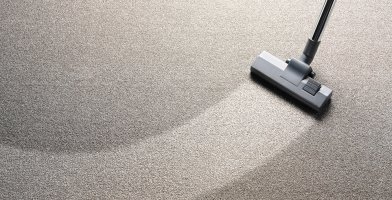- No Obligations
- Stop Paying Too Much For Your Contractor
- No Spam Calling
- Screened & ID Checked Contractors only!
Animal & Pest Control Near Me
1
Get up to 4 free quotes for pest control services and companies near you. You will find all info in our Pest Control Near Me Guide.
What Do We Mean by Pests?
Pests are unwanted plants, animals or micro-organisms that adversely affect either our property or our health. For simplicity this article will concentrate on animal pests in the home.
Having pests in your home is usually a health hazard but is always a nuisance. The pests we are talking about today can be regarded as any type of wildlife that encroaches on you at home and could cause a threat by either damaging your property or exposing you and your family to disease or dirt.
Pests vary depending on where in the world you live. Tropical or subtropical countries have far more pests than temperate areas, simply because they have more wildlife and the conditions are right for them to thrive. In this article we will be dealing with temperate climates like that found in the US.
Pests in the US range from crawling and flying insects and their larvae, birds and small mammals.
A more comprehensive list can be found in the next section.
Invertebrates: Insects, spiders, larvae.
- Bed Bugs
- Wasps
- Flies
- Cockroaches
- Bees
- Ants
- Moths
- Harlequin Ladybirds
- Fleas
- Woodworm
- Silverfish
- Spiders
Vertebrates: Birds, rodents, other mammals.
You may like some of these animals or you may hate them but the fact remains that they all try to encroach on human territory. The invertebrates like to make their nests in our homes and either damage our property or sting and bite. Bees are probably the exception in this list as they do not usually damage our property, except when they make nests in holes within walls and of course they have a painful sting which can seriously hurt children and vulnerable people. Contrary to popular belief, bees are not a protected species but they are beneficial to mankind, by pollinating fruit crops and flowers and by making honey. It is very rare that bees will have to be killed; usually they will be relocated to where they will do no harm.
Vertebrates are physically larger than invertebrates and so are more readily noticed. They damage our property and spread infectious diseases to livestock and humans.
Whatever the pest that is disturbing your life, the best thing is to get rid of them either by killing them, removing them from your environment or by frightening them away. This is known as pest control. If pests are to be killed then they are usually poisoned either by a spray or by a poison in their food and the following sections describe some of the ways of doing this.
How Do You Administer the Pesticide?
How you administer the pesticide is determined by the specific pest’s habits and whether they fly or crawl.
Insects (including spiders)
If the insect is of the flying variety then the pesticide should be administered as a mist or aerosol. Crawling insects are best dealt with by powders or granules or liquids so they come into contact either through the skin or orally. Many household insecticides can be bought by the general public from garden shops and supermarkets. These poisons, in order to be safe for human handling are not very concentrated and can be administered by the general public. Because of their weakness they are really only suitable for a small infestation. Fly and wasp killer of this type come as an aerosol and will deal with all flying insects. Ants are poisoned by a sweet liquid which is left on their trail. They think it is food and take it back to the nest to kill more than just the forager. Slugs and snails are poisoned by what is called ‘bait’ which comes in the form of pellets or powders and are scattered around the plants that they use as food and poison the molluscs on contact. These poisons however, are not really suitable for large infestations and more drastic measures must be taken.
Rodents
Rats, mice, rabbits and squirrels fall into this category. These animals can cause damage to crops, property and in the case of rats, can spread diseases to humans. It is not only food they destroy, it is not unknown for rats and mice to chew and eat the insulation from electrical cables, this causes electrical fires. The poison to deal with these animals is mixed with food to make an attractive and edible fest. Rodents can also be caught in traps but these won’t deal with large numbers of them.
Other mammals and birds
Foxes and other larger mammals can be poisoned, trapped or shot by a gun. Birds eat our crops and spread disease by defecation. Rather than being poisoned it is more usual for birds to be frightened away by loud noises or to be hunted by their natural predators.
Pest Control Contractors
All large infestations of insects or rodents should only be dealt with by a licensed pest control contractor who has access to strong chemicals or other specialist methods of elimination. They are specifically trained in the handling and application of the various poisons needed and will be able to choose the best poison for the job and are licensed to store and administer the poisons. The contractor will not only be able to assess the infestation but will know about removing nests, relocating bee swarms and disposing of the carcasses of mammals and birds.
Some pests require that the local authority is contacted in case a wider infestation is suspected and infectious diseases spread.
Risks of using poison
Apart from the obvious risk of human contact with the poison, there is also the problem of using chemicals where other beneficial animals come into contact with it. As mentioned earlier bees are not usually poisoned and are relocated if they are being a nuisance. But they will be affected by insect poison just like any other flying insect so care has to be taken. Poisons can find their way into fishponds and other water courses, and poisoned food left out for vermin may be eaten by pets such as dogs and cats, which may even eat the poisoned carcasses if not collected and disposed of promptly.
Not all the pests are poisoned
Whereas chemical means should be used where all other methods have failed, many people would rather pests be eradicated using their natural predators. For example pigeons can be controlled by using trained birds of prey and pests on crops can be eradicated by either using other insects that are their natural enemies or by planting other types of flora nearby which secrete a natural poison.
Some insects have become immune or are naturally resistant to chemical eradication and in these situations, heat treatment can be used to destroy the pests at any stage of their life cycle. Heat treatment is effective against bed-bugs, moths, cockroaches, wood boring insects and fleas.
If an animal has made its home near humans for purposes of scavenging food, but is not usually classed as a pest, then the animal will be trapped and released into its natural habitat.
Will you use a Pest Control Contractor or DIY
Killing animals is never a pleasant job and unless it is a very minor infestation, is probably always better to leave it to the professional.
Professional pest controllers:
- Are fully trained in dealing with all types of pest.
- Can use their expert judgement to choose the appropriate kind of control.
- Will take into account other animals which may be affected by the poisons.
- Have the specialist tools and protective clothing required to ensure a safe and efficient job.
- Are aware of the various regulations and license requirements needed to carry out the work.
- Can dispose of dead animal carcasses to a registered disposal site.
- Are aware of the wider implications of a certain type of pest and can notify appropriate authorities if necessary.
Obviously to use an aerosol can of fly spray or lay some ant killer or slug repellent is perfectly safe when the manufacturer’s instructions are followed. For everything else the normal householder should always use a professional.
How to choose a contractor who offers good service at a fair price
There are large reputable pest control companies whose names you will probably have heard many times, even if you haven’t used them before. Their name is synonymous with efficiency and discretion when dealing with all kinds of pests. As well as the big companies there are also some small local contractors who are perfectly good at their job and often a lot less expensive to use.
So, who do you choose?
The obvious methods when choosing a pest control specialist is to:
- Look online or in the phone book for large national companies and keep your eyes open for a name you are familiar with.
- Often the large companies will give franchises to small local companies, so don’t dismiss this option.
- Ask neighbours and friends and see if anyone else has had a similar pest problem and how they dealt with it.
- Contact your local council and see if they have a list of approved contractors.
- Phone the contractor and tell them your problem, see what kind of a response you get.
- Don’t forget to let your chosen contractor visit and see the job. The inspection may not cost you anything, but if it is charged then it will usually be credited to your final bill if you decide to use the company.
- Get quotations from three different companies. Compare their prices and how long they think the job will take. Usually a pest control company will have a list of standard prices for the most common jobs as these are usually just a case of laying the appropriate poison in the correct place.
- Ask them to what standard their employees are trained. All employees should have Confined Spaces training, Access
- Training, A recognised certificate in insect, rodent and bird management. Some members of their team will have wildlife and rifle training as well as birds of prey and Insect Control with heat, if they provide this service.
- They will have Control Of Substances Hazardous to Health (COSHH) and Risk Assessment training to enable them to handle and use chemicals safely.
- They will always use protective clothing and advise you of any protective procedures you should follow to safeguard yourself and your pets.
By law, all professionals who use pesticide chemicals must receive adequate and appropriate training in safely using pesticides. This includes the following:
- Operators, technicians and contractors.
- Desk and field managers.
- Employers.
- Self-employed specialist contractors.
- Training personnel giving instruction to others in the use of chemical pesticides.
Also by law, anyone who uses supplies or stores agricultural pesticides must have a certificate of competence. Agricultural pesticides are defined as poisons used:
- In agriculture.
- In horticulture.
- On amenity areas such as parks, streets, sports grounds etc.
- In forestry.
- On or near water.
- As herbicides or pesticides used in industry.
Who should you NOT choose?
There are a few scams around, some easy to spot and some not so easy. Here are just a few of them:
You call a pest control company you find online and they send out a licensed technician. He does the inspection and arranges to come back at a later date to carry out the job. When the time comes, a different person arrives with the company uniform and vehicle and does the job. The pests don’t all disappear and soon return as bad as before. What has happened is that some company has employed one licensed professional whose job it is to meet the customer, show his credentials, decide which procedures to use and train the other employees. The guy who arrived at your house was only partially trained and did not do the job correctly. Always ask to see the license of every person who lays chemicals in your home.
A pest control operative arrives unannounced and offers a free pest inspection. Very soon there is an “emergency” when he finds “evidence” of a major infestation of ants or mice or rats. Sometimes disreputable scammers can deposit a few carcasses around the house and then “discover” them. Never hire anyone who just turns up at your door and always get a second opinion.
Bed bugs are a common household pest but very difficult to remove. The so-called professional offers to kill the bed-bugs by heat treatment (The bugs and their eggs die at 60°C). The operative uses heaters but doesn’t use them properly. Instead the bugs just migrate to a cooler part of the house until the heat has been turned off.
What other services will a pest control contractor usually offer?
Some of the services provided by pest control professionals include:
Pest control.
Bird proofing. There are various methods of restricting access to birds and a contractor will be able to advise on the most appropriate for your circumstances.
Heat treatments. For getting rid of various insect pests.
Bird of prey pest control. Many areas cannot be exposed to poisons such as public areas, universities, sports grounds and building sites and these are often ideal nesting and feeding sites for birds. Using a tame bird of prey is the ideal solution.
Dead animal removal. Contractors have the facilities and equipment to remove carcasses and dispose of them safely. Useful for road-kill and other similar situations.
Biohazard cleaning. Often the contractors will have specialist knowledge required to clean up after a spill of biohazardous substance such as drugs, bodily fluids or faeces.
Crime scene cleaning. Often after a serious crime has taken place, the area will require cleaning to prevent infection spreading. A good pest control company will have the necessary knowledge and equipment to handle this and be registered with the police for this kind of work.
A Pest Control Service Cost Breakdown
The overall cost of treating a pest infestation will depend on many factors as follows:
Type of pest. Because of the differing requirements and solutions needed for different pests. For example a rat problem compared to a cockroach problem.
Size of the infestation. Obviously the extent of the infestation will have a major impact on the cost.
Type of treatment. The difference in the type of treatment required to provide a solution will have a direct effect on the cost. For example does the infestation require a chemical spray or heat treatment? Is the treatment a simple one application or does it require repeated treatments? Is the treatment preventative or corrective?
Size of the property or land. A large house will require more time to apply an effective treatment than a small house.
Do you need multiple treatments? Some pests require multiple treatments and some require just one. For example a wasp nest treatment requiring just one visit will cost less than a mouse treatment which requires several visits.
Is the pest control for a residential or a commercial property? The needs of a residential property will often be different to that of a commercial property. Businesses will often require a pest management programme to comply with food hygiene regulations and this will be reflected in the price.
Bearing all these variations in mind, the average cost of pest removal for domestic premises would probably be:
| Pest | Cost | Notes |
|---|---|---|
| Rats & Mice | $325 | Usually, takes three visits maximum |
| Squirrels | $315 | Usually, two visits required. Squirrel proofing will cost extra |
| Moles | $40 per visit | Usually, requires two visits. |
| Cockroaches | $300 minimum for initial treatment | Usually, takes three visits maximum. |
| Bedbugs | $500 to $1500 | Usually, takes three visits |
| Fleas | $80 for single bed home $350 for 3 bed home | Single treatment. Needs the whole house treated. |
| Wasps & Hornets | $300 per nest | Single treatment, but each nest will have to be sprayed and removed. |
| Bees | $200 to $500 | Single treatment. If you can find a local beekeeper who will remove the nest then there may be no charge. |
| Ants | $250 minimum | Usually, this will take about 6 to eight weeks. Indoors only. |
| Woodworm and beetles | $180 average | - |
Preventative Pest Control
Theoretically the best way to prevent an infestation is to remove the conditions favourable to the pest. In practice this is not always possible to achieve when the conditions are out of your control.
Generally most serious household pests can be prevented by keeping your house and pets clean and free from parasites. Do regular maintenance checks in the loft or behind cupboards for wasp nests or mouse droppings, especially in the breeding season or cold weather.
Keep readily available an aerosol can of flying insect spray and a couple of mousetraps (humane or otherwise) and use them at the first sign of an unwanted visitor.
DIY vs Professional. Which is best?
As mentioned earlier it is possible for the ordinary person to prevent many of the common household pests from setting up home in your house.
- Keep your pets treated for fleas and worms.
- Make sure outbuildings are inspected regularly.
- Use DIY pesticides regularly to stop an infestation from taking hold.
If you do all these things and still end up with an infestation that you can’t handle, call in the local eterminators. They will have equipment and specialised knowledge that will easily and quickly provide a solution. If you decide to take this option, you will want to ask some questions before the job starts.
10 Questions to Ask the Pest Control Contractor before Hiring
1. Have you come across this type of pest before?
This is a vitally important question. This may be his first job dealing with this type of pest. If the local pest control company is reputable then the operative will be fully trained.
2. How many operatives are needed?
Will he be alone or with a colleague? If a wasp nest has taken hold in the loft or roof space then they will probably need two people to deal with it. Most companies assign operatives to work in pairs for Health and Safety reasons.
3. When can you begin the job?
You will need time to assemble other quotes. Obviously you want the job started and finished as quickly as possible but don’t be pressurised into anything. Remember that the contractor will need time to organise his work diary so don’t expect an answer straight away.
4. How long will the treatment take?
A reputable pest controller will know the approximate duration and how many visits he will need to make.
5. Do you foresee any major problems?
An experienced pest control operative will usually be able to see if there are any expected problems. Maybe there are access problems or maybe there are items to be removed to expose the root cause of the problem. You must remember that unknown quantities in a quotation will make a company charge more to cover themselves.
6. Can I have a firm quote?
If possible get a firm quotation. If there are any unknowns on the job then the contractor will say so and his quote will be priced accordingly. Never pay cash in advance. No reputable contractor will expect this. They will always provide an invoice. If you are not using your local council then get at least three different quotations for the same job specification. Understand the difference between an estimate and a quotation.
7. Have you any references from previous customers?
Always try to get references for previous work. An operative’s reluctance to give these can show that either he is a novice or his previous work was not good enough. Talk to his previous customers and get their opinion of how he did the job.
8. What is your ‘after sales service’?
Basically you want to know if you can call him back if the infestation reoccurs and whether this is part of the guarantee. Ask him to include some kind of guarantee into the written quotation.
9. Ask to see the operative’s certificates.
A reputable pest control operative will be
a. Trained in the relevant laws.
b. Aware of the risks associated with chemical pesticides.
c. Aware of the risks which may result from chemical pesticides.
d. Trained in safe working practices.
e. Trained in emergency action if there is a spillage or a fire.
f. Will have an understanding when to use health or exposure monitoring.
g. Aware of record keeping and the proper use of equipment.
h. Will belong to a national professional organisation.
10. What will he expect of you?
Always try to do as much as you can of the non-specialist things, for example, clean out any areas of the garden where rodent nests may be found. Treat your cat and dog for fleas otherwise the minute your house is clean, the infestation will return. Most household pest control work will require access to the inside of the house. Ensure there is access to the roof space or any cellars and ensure that furniture can be moved easily.
Winding Up
Pest infestation of your house or garden is always upsetting and can be embarrassing. Most people don’t mind killing invertebrates but generally do not like to kill the larger mammals. But if a small infestation goes uncorrected then it can become serious and soon escalate into a major infestation.
A certain amount of preventative work can be done by the general public using a little common sense and simple pesticides and traps bought from retail shops. But for an infestation larger than you can handle, you should always call in a professional. They will assess your individual situation




